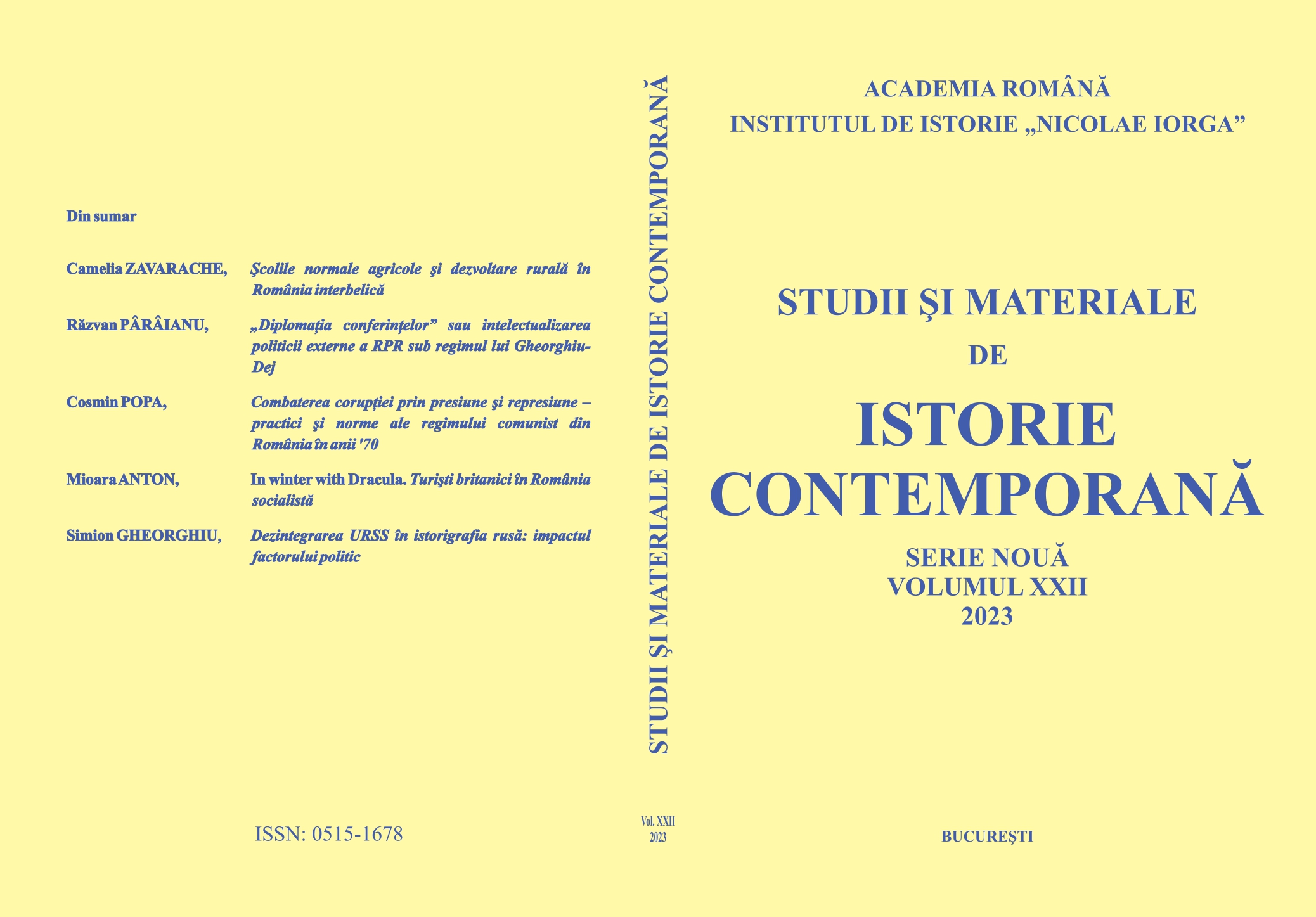Combaterea corupţiei prin presiune şi represiune – practici şi norme ale regimului comunist din România în anii ’70
Anti-corruption through Pressure and Repression: Practices and Norms of the Romanian Communist Regime during the 1970s
Author(s): Cosmin PopaSubject(s): History, Economic history, Political history, Social history, Recent History (1900 till today), Post-War period (1950 - 1989)
Published by: Institutul de Istorie Nicolae Iorga
Keywords: society; repression; Nicolae Ceauşescu; corruption; economy;
Summary/Abstract: The beginning of the 1970s was a landmark moment in the evolution of the communist regime in Romania on several levels. A crucial one was the significant change of emphasis in the regime's anti-corruption policies. Nicolae Ceauşescu shifted the pressure from the party and bureaucratic apparatus to the entire society. The aim was not only to limit the economic effects of criminal activity but to also make political control more effective. As significant changes to the country’s economy loomed, the regime needed the full support of the party apparatus and the repressive system, both of whom would hold crucial roles in the implementation of these new economic policies. Ceauşescu carefully transformed party structures into oversight bodies directly subordinate to the Secretary-General. In parallel, he greatly enhanced the involvement of the secret police in the field. Nicolae Ceauşescu thus ensured both his total ability to manipulate the entire system and an important lever of control over the economy and society as a whole. For a while, these changes somewhat limited the economic effects of corruption. Yet, above all, they prevented any vernacular liberalization tendencies that could jeopardize the new direction of the regime.
Journal: Studii şi materiale de istorie contemporană (SMIC)
- Issue Year: 22/2023
- Issue No: 22
- Page Range: 144-160
- Page Count: 17
- Language: Romanian
- Content File-PDF

